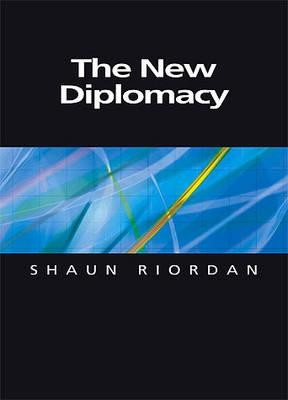
- We will send in 10–14 business days.
- Author: Shaun Riordan
- Publisher: Polity Press
- ISBN-10: 0745627900
- ISBN-13: 9780745627908
- Format: 13.9 x 18.9 x 1.2 cm, softcover
- Language: English
- SAVE -10% with code: EXTRA
Reviews
Description
The world of international relations has changed radically in the last few years. Technological, social and political change have combined to undermine the traditional assumptions of diplomacy - in particular, the events of 11 September set in stark relief the risks and dangers.
Shaun Riordan, a former British diplomat, draws on his own experience, case studies, and current debates in international relations to assess the performance of diplomatic services and to sketch out the new diplomatic environment. Traditional diplomatic services and structures are found wanting.
Riordan argues forcibly against realpolitik and for a more pro-active diplomacy based on the promotion of ideas and values as a better way of securing the West's long-term interests. In doing so, he presses for radical re-structuring of diplomatic services, replacing hierarchical with networked structures, and the creation of new forms of global governance that incorporate NGOs and the private sector, as well as government officials, in a broader diplomatic effort.
EXTRA 10 % discount with code: EXTRA
The promotion ends in 18d.16:00:04
The discount code is valid when purchasing from 10 €. Discounts do not stack.
- Author: Shaun Riordan
- Publisher: Polity Press
- ISBN-10: 0745627900
- ISBN-13: 9780745627908
- Format: 13.9 x 18.9 x 1.2 cm, softcover
- Language: English English
The world of international relations has changed radically in the last few years. Technological, social and political change have combined to undermine the traditional assumptions of diplomacy - in particular, the events of 11 September set in stark relief the risks and dangers.
Shaun Riordan, a former British diplomat, draws on his own experience, case studies, and current debates in international relations to assess the performance of diplomatic services and to sketch out the new diplomatic environment. Traditional diplomatic services and structures are found wanting.
Riordan argues forcibly against realpolitik and for a more pro-active diplomacy based on the promotion of ideas and values as a better way of securing the West's long-term interests. In doing so, he presses for radical re-structuring of diplomatic services, replacing hierarchical with networked structures, and the creation of new forms of global governance that incorporate NGOs and the private sector, as well as government officials, in a broader diplomatic effort.


Reviews